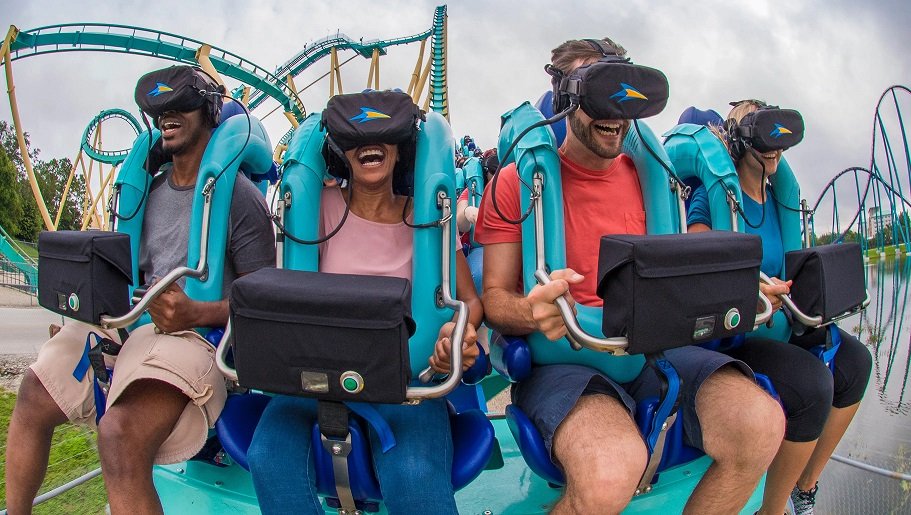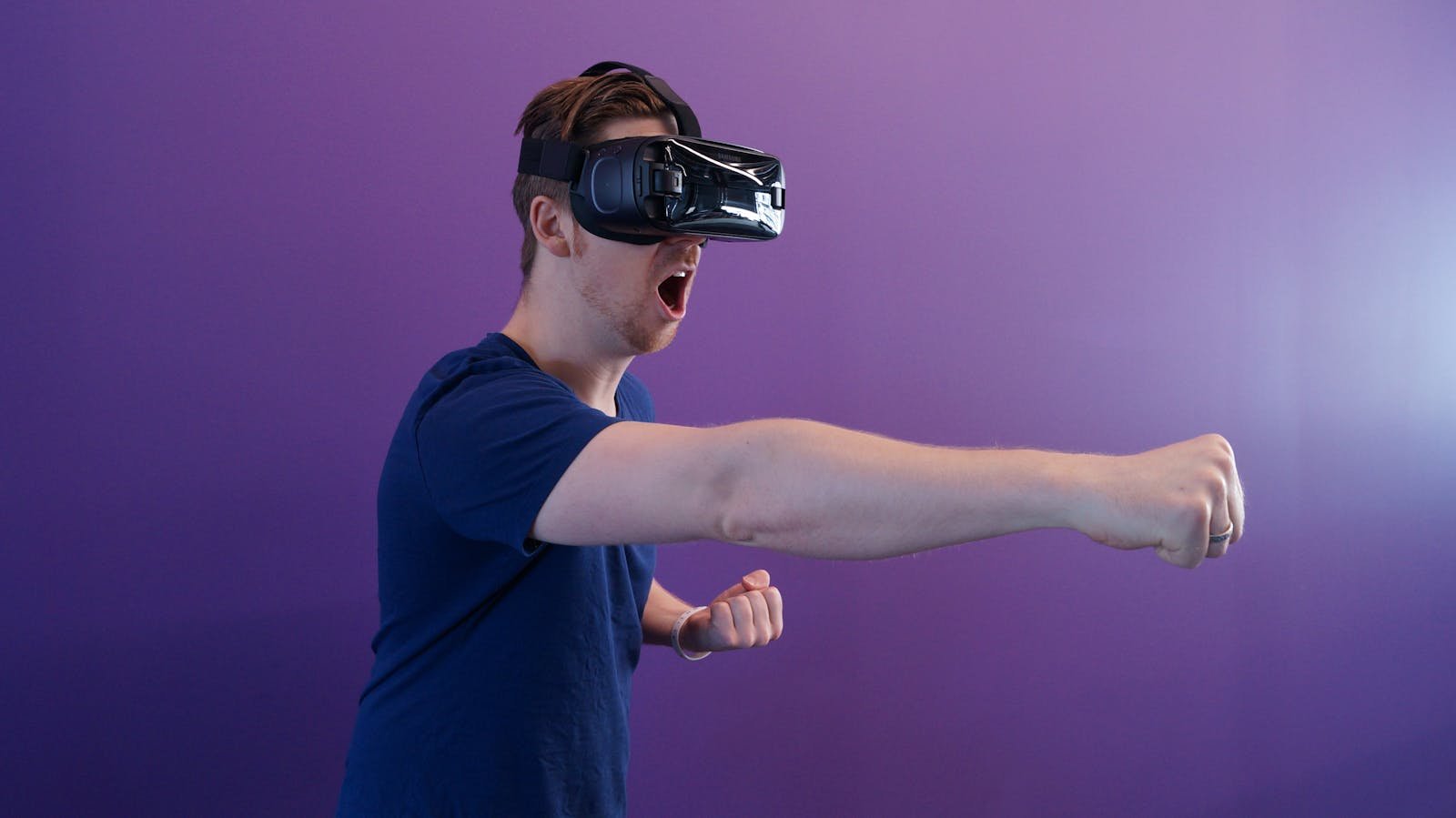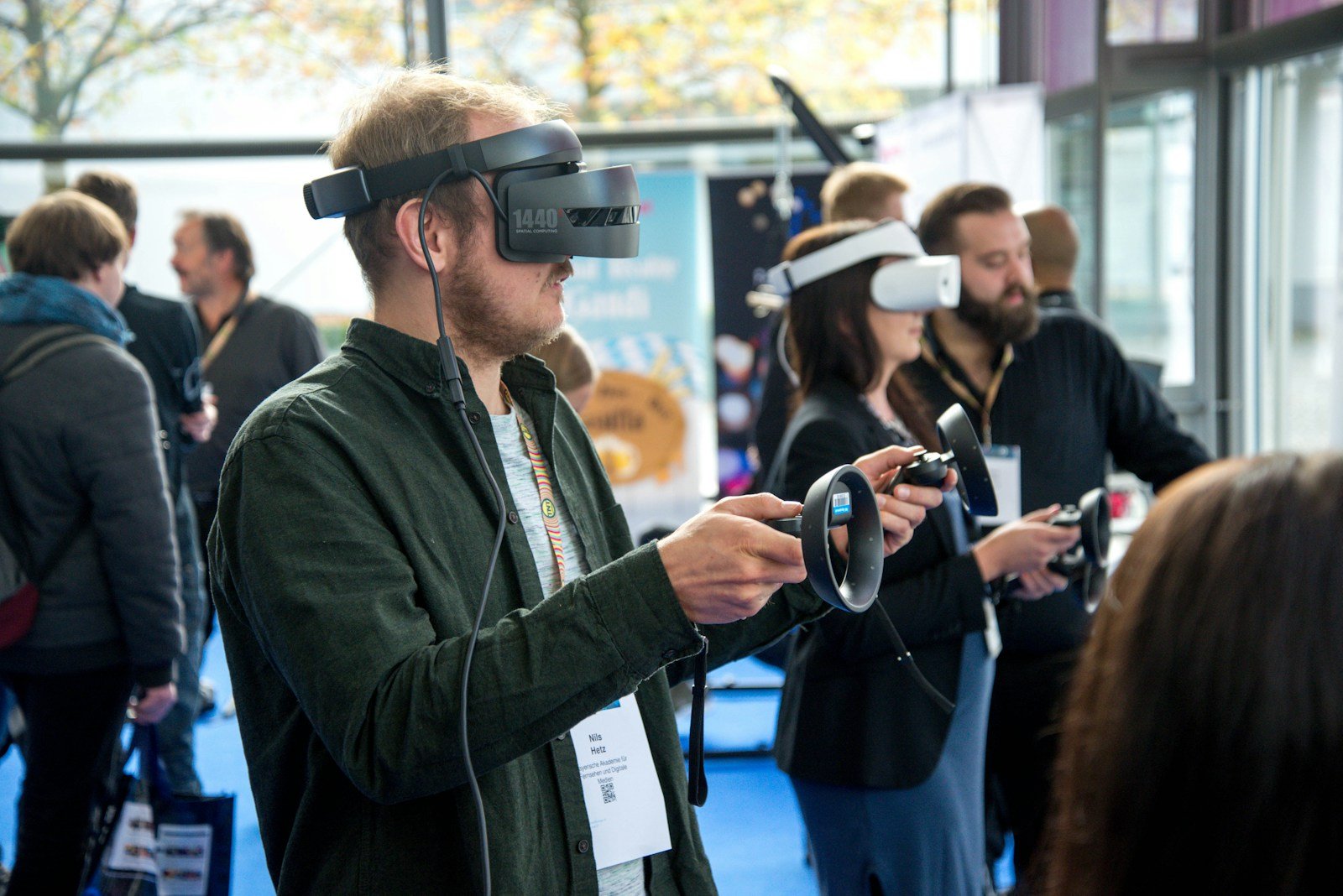The utilization of Virtual Reality (VR) technology in theme parks can provide several benefits to both the park and its visitors. Here are some advantages of incorporating VR into the theme park experience:
- Enhanced Immersion: VR technology allows guests to be fully immersed in virtual environments and narratives. It can transport them to imaginative worlds and create experiences that go beyond the physical limitations of traditional rides and attractions. This heightened level of immersion can lead to more engaging and memorable experiences for visitors.
- Expanded Ride Experiences: VR can be integrated into existing rides or attractions, enhancing them with virtual elements. This can transform a traditional roller coaster into a thrilling journey through a fantasy landscape or a space adventure. By adding VR, theme parks can offer a wider range of experiences and appeal to a broader audience.
- Dynamic Storytelling: VR enables theme parks to tell immersive and interactive stories. Guests can become active participants in the narrative, making choices and influencing the outcome of their virtual experiences. This dynamic storytelling approach can increase guest engagement and provide a sense of agency within the virtual world.
- Accessibility and Inclusivity: VR can provide accessibility options for guests with physical disabilities or limitations. It allows individuals who may not be able to participate in certain physical activities to experience thrilling and immersive adventures in a virtual space. VR can also provide inclusive experiences for guests of all ages, making it appealing to a wider demographic.
- Flexibility and Variety: With VR, theme parks have the ability to offer a wide range of experiences within a limited physical space. They can create virtual worlds that cater to different themes, genres, and preferences, providing guests with diverse options to choose from. This flexibility allows parks to refresh their offerings without the need for extensive physical renovations or new attractions.
- Reduced Physical Constraints: VR experiences can overcome physical limitations, such as space restrictions or safety concerns. Theme parks can create virtual attractions that simulate extreme environments, fantastical landscapes, or even experiences that would otherwise be too costly or impractical to create in the real world. This opens up new possibilities for unique and innovative attractions.
- Personalization and Replayability: VR experiences can be customized and personalized to each guest’s preferences. Visitors can have different story paths, alternate endings, or interactive elements based on their choices. This personalization, coupled with the ability to replay experiences, encourages guests to revisit the attraction multiple times to explore different paths and outcomes.







